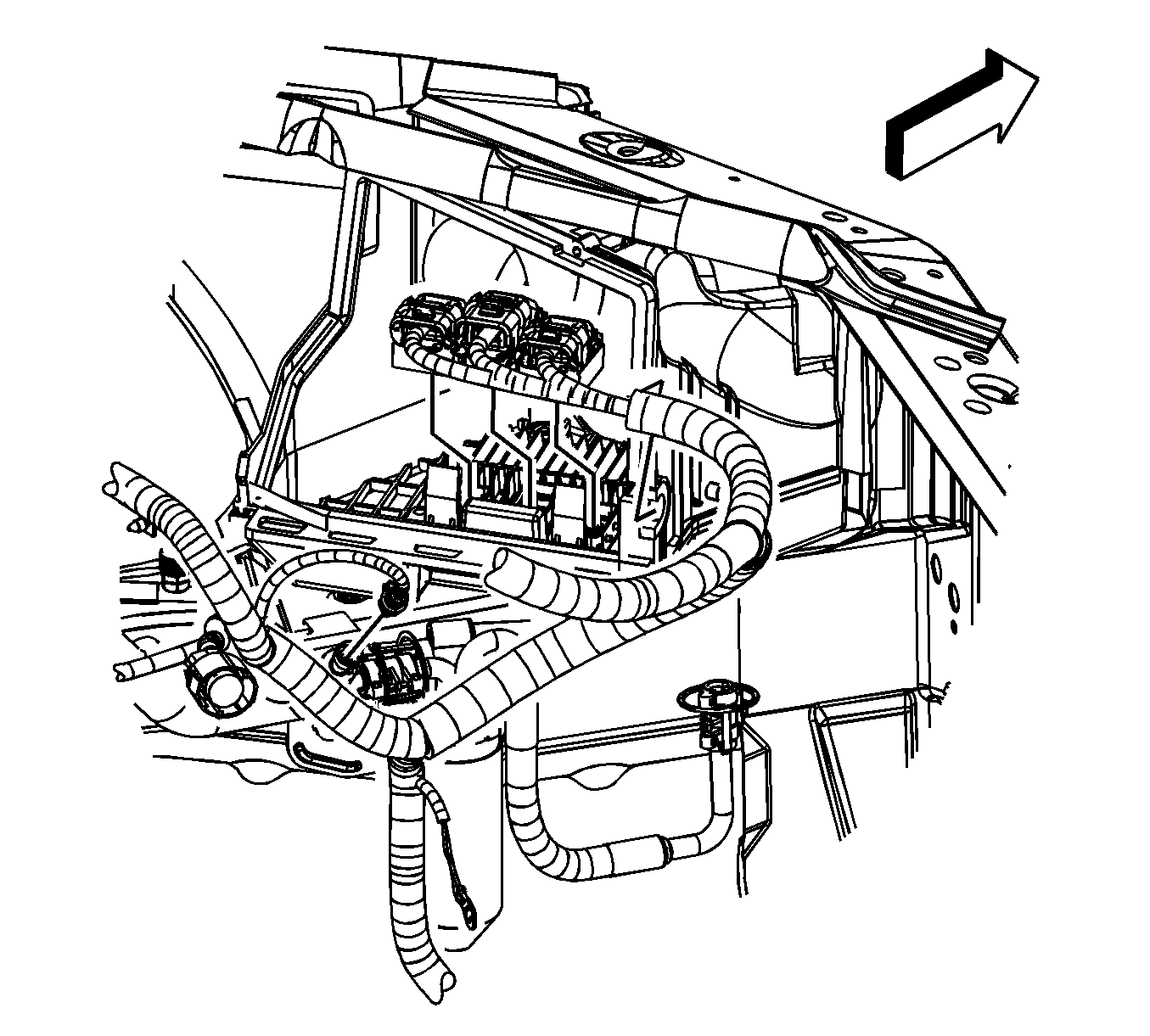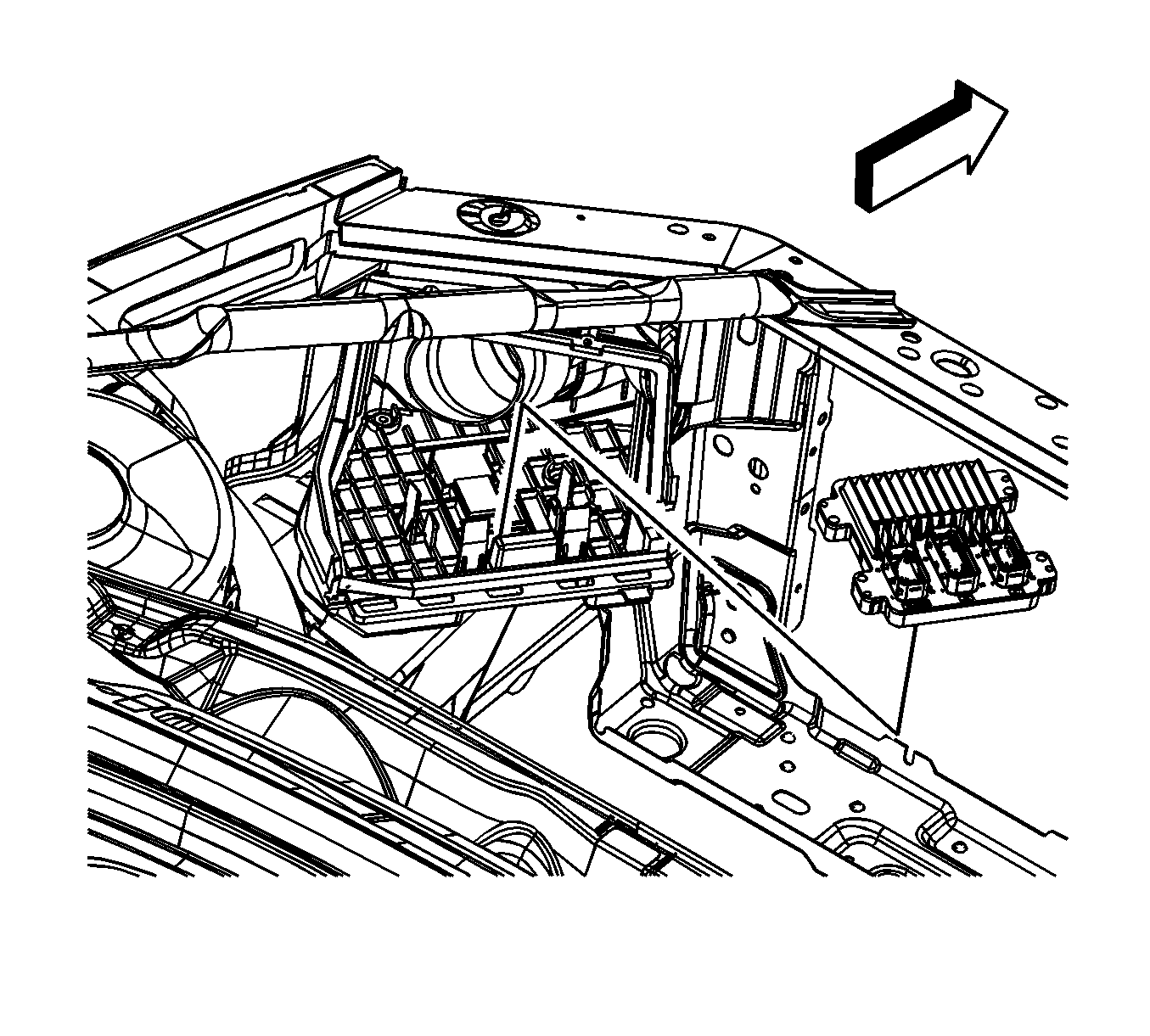Service of the powertrain control module (PCM) should normally consist of either replacement of the PCM or electrically erasable programmable read only memory (EEPROM) programming. If the diagnostic procedures call for PCM replacement, inspect the PCM first to see if the replacement is the correct part. If the PCM is faulty, remove the PCM and install the new service PCM.
The new service PCM will not be programmed. You must program the new PCM. DTC P0602 indicates the EEPROM is not programmed or has malfunctioned.
Notice:
• Turn the ignition OFF when installing or removing the control module connectors and disconnecting or reconnecting the power to the control module (battery cable, powertrain control module (PCM)/engine control module (ECM)/transaxle control module
(TCM) pigtail, control module fuse, jumper cables, etc.) in order to prevent internal control module damage. • Control module damage may result when the metal case contacts battery voltage. DO NOT contact the control module metal case with battery voltage when servicing a control module, using battery booster cables, or when charging the vehicle battery. • In order to prevent any possible electrostatic discharge damage to the control module, do no touch the connector pins or the soldered components on the circuit board. • Remove any debris from around the control module connector surfaces before servicing the control module. Inspect the control module connector gaskets when diagnosing or replacing the control module. Ensure that the gaskets are installed correctly.
The gaskets prevent contaminant intrusion into the control module. • The replacement control module must be programmed.
Important: It is necessary to record the remaining engine oil life. If the replacement module is not programed with the remaining engine oil life, the engine oil life will default to 100 percent. If the replacement module is not programmed with the remaining engine oil life, the engine oil will need to be changed at 5 000 km (3,000 mi) from the last engine oil change.
Removal Procedure
- Using a scan tool, retrieve the percentage of remaining engine oil. Record the remaining engine oil life.
- Disconnect the negative battery cable. Refer to Battery Negative Cable Disconnection and Connection .
- Remove the left front inner fender brace. Refer to Front Fender Upper Diagonal Brace Replacement .
- Remove the air cleaner. Refer to Air Cleaner Assembly Replacement .
- Disconnect the PCM electrical connectors
- Remove the PCM from the air cleaner lower housing.


Installation Procedure
- Install the PCM to the air cleaner lower housing.
- Install the PCM electrical connectors.
- Install the air cleaner. Refer to Air Cleaner Assembly Replacement .
- Install the left front inner fender brace. Refer to Front Fender Upper Diagonal Brace Replacement .
- Connect the negative battery cable. Refer to Battery Negative Cable Disconnection and Connection .
- The new PCM must be programmed. Refer to Control Module References .


